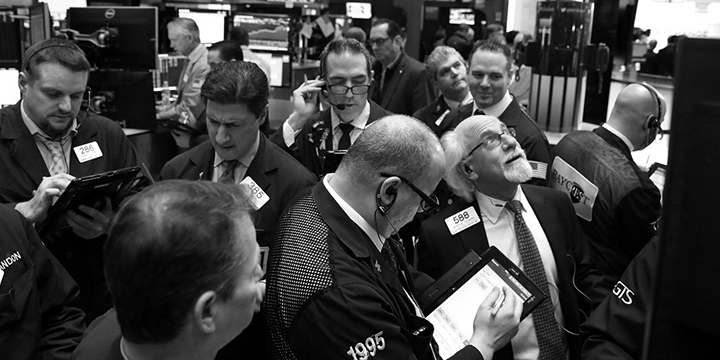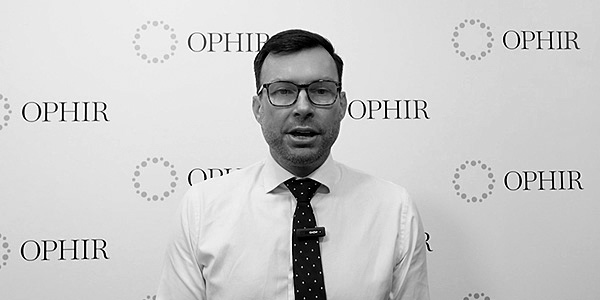In our Investment Strategy Note we review how longer term performance is more indicative of skill than luck and two other measures investors can use to assess managers investment decisions.
It is often said that the stock market is sort of like a voting machine, through which countless individual investors register their choices. Some of these choices, or votes, will be based on rigorous research, others on human emotion, and many a mix of both. One thing all of these investors have in common however, is the hope that their decisions bring handsome profits.
But how does this actually work given the investment landscape today is bigger, more diverse and ultimately more competitive than it has ever been? Fund managers, traders and individual investors devote countless hours, pouring over a wide range of resources, to analyse markets and companies. Despite these efforts, the historical returns achieved by active managers is mixed. And depending on the asset, time period and market environment being considered, it is not uncommon to see the average investment managers actually underperform the market.
Competitive Market
It’s tempting to believe that skilful equity managers should always be able to outperform the market. In reality this is not the case, with a variety of market forces and competitive pressures dictating whether an investment manager ultimately outperforms or underperforms in any given year.
By far the most important determinant of portfolio performance, and investment skill, is the track record of individual stock picks. The longer the period of outperformance, the greater the indication an investment manager has skill. In the investing game, anyone can get lucky in the short term. ‘Hit rates’ and ‘win loss’ ratios offer another way of looking ‘under the hood’ of headline performance numbers to see how managers might be adding or detracting value through their investment decisions. Together, these two measures answer the simple, yet crucial, questions as to whether an investment manager is getting more decisions right than wrong (hit rates), and whether those good decisions are profitable enough to offset the poor ones (win loss ratios).
Not surprisingly, academics have studied these measures in detail, and found that the average hit rate for the portfolios in the US equity market was just 49.6%. What this means is that the portfolio manager generally gets more than five out of 10 stock decisions wrong! Thankfully however, this disappointing outcome for the hit rate is offset by an average win loss ratio of 102%, which implies that the good decisions offset the poor decisions, but only just.[1].
Now it’s worth noting that these numbers relate to averages, and therefore encompass all the decisions made by every investment manager in the industry. But for managers with particular skill, and for some of those operating in less competitive segments of the market, the hit rates and win loss ratios are likely to be better.
Conviction is Rewarded
The small cap equity space probably contains some of the clearest examples of portfolio managers being able to generate outperformance via a strong win/loss ratio which more than compensates for the middling hit rate. Picking which small cap company will execute its business plan brilliantly and deliver its full share price potential involves making choices that are very risky. A fund manager of such a portfolio might pick many companies that display great potential, meeting or exceeding investment guidelines, only to find them troubled by one or more issues after purchase, and either stalling or falling upon hard times. But the few companies that do hit their marks should deliver tremendous growth and often provide returns of five times or more, easily offsetting the disappointing performance of the weaker picks. Portfolios structured along these lines, with a middling hit rate and a high win/loss ratio, should perform strongly if positions are sized and managed well.
By contrast, large cap fund managers often find themselves in a situation where picking many reasonable companies is easier than finding a few with tremendous growth potential. In the often hyper-competitive large cap space, the universe of managers is often populated with a large proportion that have hit rates around 50% and win/loss ratio’s that struggle to substantially get above 100% due to the more limited growth opportunities to invest in.
Unique Insights
At Ophir we believe that knowing what everyone else knows is not enough, it’s already in the price. Instead we gain unique insights through an investment process which emphasises detailed fundamental analysis of companies and their ecosystem, including quantitative research on financial health, as well as more qualitative assessments on the businesses competitive position and the strength of management. These unique insights allow us to form a view on whether the prices investors are currently setting through their ‘votes’ on a company, are realistic representations of what we believe to be that company’s prospects. Finally, we then aim to allocate our risks towards the ‘high upside’ stocks, where we believe the share market is significantly underpricing the company’s long run potential. Through this approach in the Ophir equity strategies over the long term we have been able to achieve good hit rates (55-65%). More importantly for performance though, we have been able to achieve high win/loss ratios. This has stemmed from placing higher weights in stocks that we have higher conviction in, and that conviction has in general and over time paid off, with the outperformance from ‘winners’ materially outstripping underperformance from ‘losers’.
So ultimately, whilst any investor can get lucky in the short term, long term outperformance increases the likelihood it is due to skill, as does evidence your highest conviction investments have paid off. This suggests that investors should look for managers with a good long-term track record, and a high win/loss ratio, amongst other factors, to increase their chances of investment success.
[1] Inalytics database




